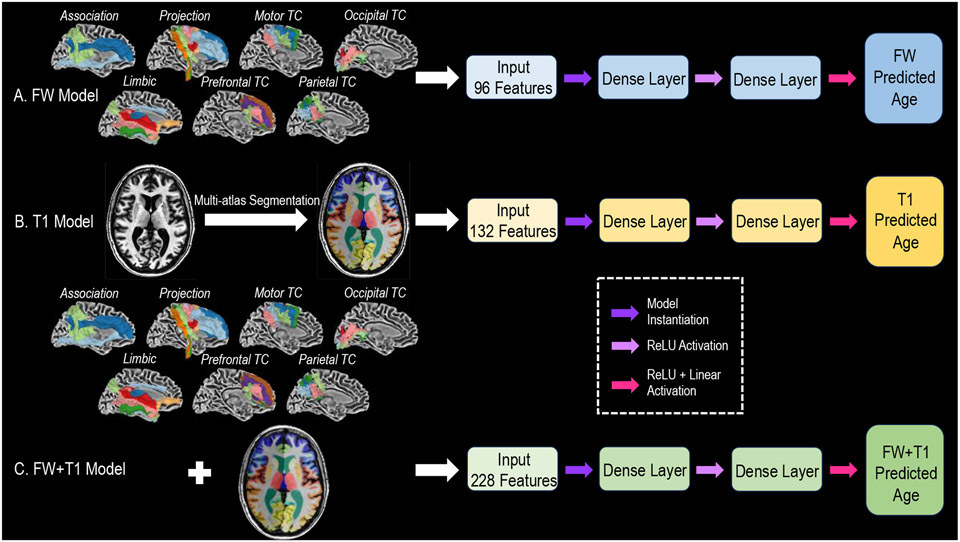Yang, Y., Sathe, A., Schilling, K., Shashikumar, N., Moore, E., Dumitrescu, L., Pechman, K. R., Landman, B. A., Gifford, K. A., Hohman, T. J., Jefferson, A. L., & Archer, D. B. (2024). A deep neural network estimation of brain age is sensitive to cognitive impairment and decline. Pacific Symposium on Biocomputing. Pacific Symposium on Biocomputing, 29, 148–162. https://doi.org/10.1142/9789811286421_0012
In exploring Alzheimer’s disease (AD), researchers are harnessing artificial intelligence to enhance diagnostic capabilities through neuroimaging, focusing on predicting ‘brain age’—a potential biomarker for AD. This study improved upon previous efforts by incorporating advanced free-water (FW) correction in diffusion MRI (dMRI) scans, which separates tissue from fluid more accurately, alongside T1-weighted MRI. Three neural networks were created using these improved scans to predict brain age, each showing high accuracy in predicting actual age for cognitively unimpaired individuals and differentiating those with mild cognitive impairment. Notably, the combined FW+T1 model exhibited the best performance. Furthermore, all models were significantly correlated with cognitive performance, both cross-sectionally and longitudinally, across memory and executive function domains. These results highlight the potential of combining advanced imaging and AI to refine early detection and monitoring strategies for cognitive decline and AD.
